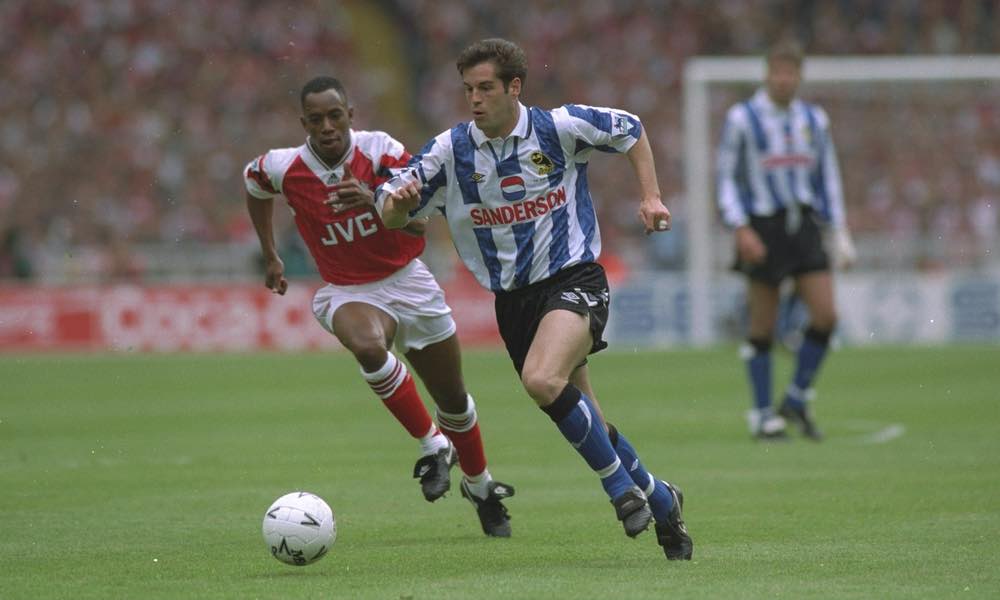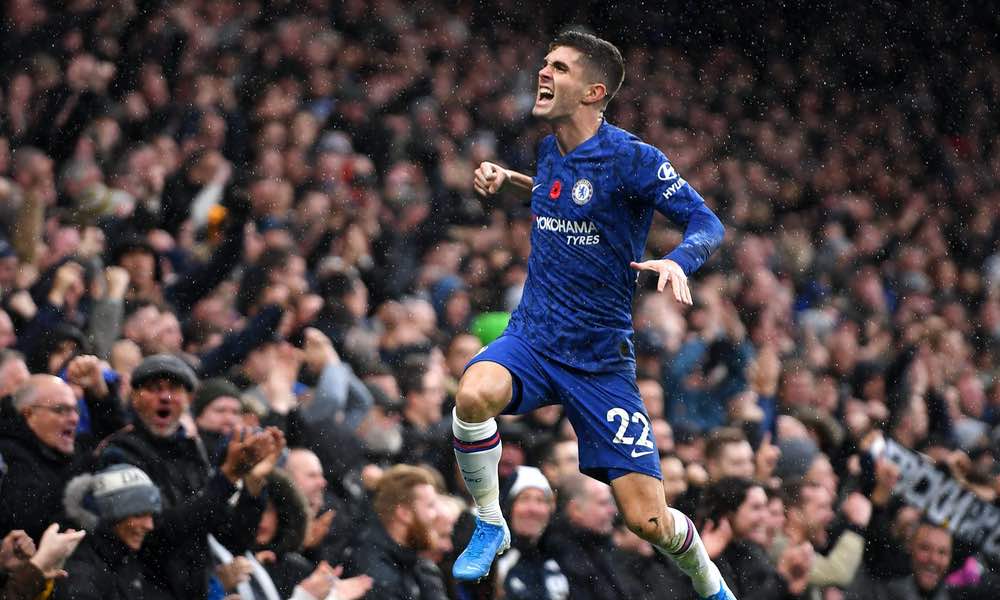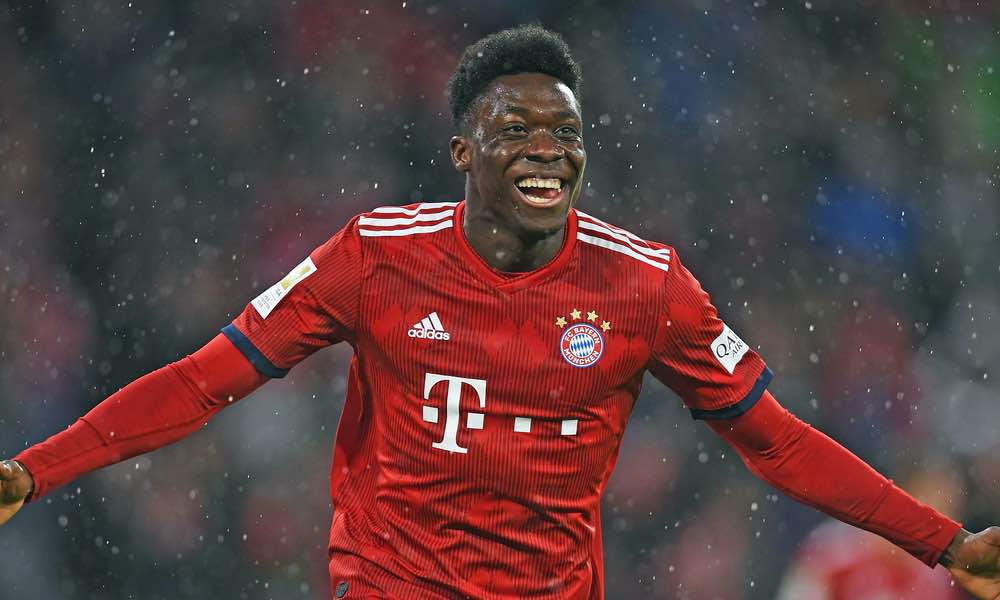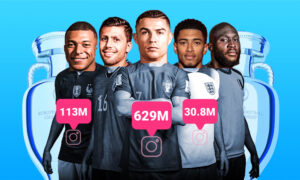While the 2020 Champions League fizzled out with a 1-nil final, for many, the competition peaked in its action-packed quarter rounder. The unstoppable Bayern Munich put eight past Barcelona in a ten-goal thriller where Lionel Messi, your favourite footballer’s favourite footballer, was rendered ineffective by ruthless German efficiency. In a watershed moment, Bayern rookie Alphonso Davies blazed past Barca veteran Nélson Semedo, setting up a Kimmich tap-in for Bayern’s fifth goal. Davies’s speed and agility proved essential to Bayern’s vertiginously high back line, allowing the likes of Kimmich, Gnabry, Muller and Robert Lewandowski to express themselves in the box.
Davies, the teenager making prestigious European institutions look easy-breezy, hails from Edmonton, Canada. He transferred to Bayern from the Vancouver Whitecaps, a small team in the American MLS league. This UCL season, MLS alumni popped up all across Europe’s top clubs, from RB Leipzig’s exciting attacking midfielder Tyler Adams, to Chelsea’s pacey winger Christian Pulisic. This Premier League season, Pulisic wowed fans with nine goals and six assists in 25 appearances; like Davies, Pulisic started his European “soccer” story in the Bundesliga.
For this newest crop of young American stars, the Bundesliga becomes the gateway to European sporting excellence. Of the USA’s 2019-20 starting 11, 6 players are contracted to Bundesliga teams, including Davies, Tyler Adams, and the promising Schalke CM Weston McKennie. A variety of factors point these aspiring Americans towards Germany rather than their anglophone cousins in the UK. Primarily, Germany’s hospitable work immigration laws allow international players to relocate with ease. On top of that, the German system boasts excellent scouting and cutting-edge tactical coaching, as displayed by the pair of German managers clashing in the Champions League final. When paired with the wealth of youthful, athletic footballing talent emerging from the states, a powerful sporting success story is born.

Image Credit | Premier League
This story isn’t as new as it might seem. The first American professional in the Premier League, John Harkes, kicked a football on an English pitch as far back as 1992. So far, America, the country of 45 presidents, has exported 45 players to the Prem. The most prolific, Brad Friedel, made 450 league appearances. The likes of Clint Dempsey and Brian MacBride still linger in the minds of many Premier League fans, and MacBride’s name adorns freshly promoted Fulham’s hospitality bar to this day. Brad Friedel, like ex-Evertonian Tim Howard and current Man City reserve Zack Steffen, form America’s prime contribution to English football to date: goalkeepers. Historically, Americans make great shotstoppers in the European game, possibly due to the transferable skills from other, more traditionally American manual sports. While you’re unlikely to see Steffen, a 2019 signee from Fortuna Dusseldorf, take Ederson’s number one shirt any time soon, he is sure to find a first team role eventually.
The first North American “soccer” players in Europe faced a wave of stigma from Europeans, yet Pulisic and Davies’s stats are hard to ignore. Davies, before his ridiculous runs in the UCL quarter finals, broke a Bundesliga speed record in the season. At 22.16 miles per hour, Alphonso Davies made the fastest sprint since Bundesliga metrics began in 2011. Davies faced off against another record-breaking footballer, Neymar, in the final, yet the two were almost teammates. According to Transfermarkt, PSG put an offer in for “Phonzie” in the summer of 2018, just after he signed for Bayern. In the wake of the final, it’s clear that although PSG might have paid more, Davies made the right call by signing for the German champions.

Image Credit | GQ Magazine
At $9 million, Bayern’s deal with the Vancouver Whitecaps became the sixth most expensive in MLS history. American franchising regulations generally rely on swaps rather than financially incentivised deals in the MLS, which keeps sale prices relatively low. Still, due to a performance clause in Davies’s contract, as the player started in Bayern’s Champions League winning 11, Vancouver also received a $1 million bonus. Even at $10 million, Davies proves to be worth every penny: to put it in perspective, Newcastle United paid twice that fee to buy Almiron from Atlanta.
The very fact that two formidable European finalists battled over an MLS-export shows just how much of a goldmine American talent has become. With the likes of Pulisic, Adams and McKennie coming through, this trend can only increase. As young American talents, MLS alums have mind-boggling potential on the pitch and in the bank balance: bought for six-figure fees, Pulisic and Davies are tied as the most valuable CONCACAF players in the world at around $64 million each.
The Bundesliga corners the market for American footballing exports with their savvy at finding academy gems and training them to world-beating heights. As the “soccer player” stigma fades, we’re sure to see the wealthier Premier League teams wading into the market. Chelsea’s Christian Pulisic stands at the vanguard of a new wave of exhilarating American ballers. Perhaps that’s why they call him Captain America.
















